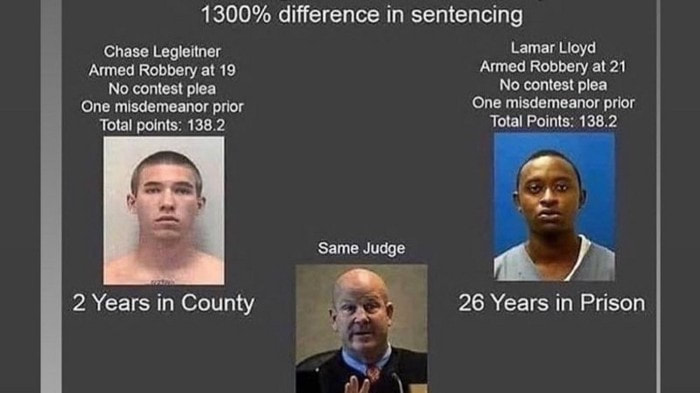|
Why you should care even if you don’t smoke weed or eat edibles GFC: Grown Folk Conversations Imagine a plant that was found in Asia 500 BC and used by indigenous people around the world for medicinal reasons and part of religious ceremonies was made illegal in 1925 based on propaganda, rhetoric and racial bias against Mexican immigrants and Black people (sound familiar). That plant is cannabis. Imagine a country where almost 95 years later, the same plant is being used to help a wide variety of mental and physical ailments like cancer and epilepsy, anxiety and PTSD. Yet, it’s resulted in 700,000 people arrested, 85% are people of African descent (Black) or Hispanic even though they use the drug at the same rate as white people (who are 76% of the country’s population). That country is America. Now imagine you got caught and arrested without incident for having a small amount of marijuana/cannabis when you were 18 and you’re STILL incarcerated during the Covid-19 pandemic. Then, you discover that a white boy, same age with the same amount of marijuana in a neighboring suburb is graduating from college this year because he caught, but wasn’t arrested. Instead, his drugs were confiscated, he was given a verbal warning and allowed to go home. The police use their “discretion” to warn, fine or arrest a person and although the white boy has been caught 2–3 more times in college he’s NEVER been arrested or faced a major consequence at his school. Two kids same crime — totally different consequences and outcomes. Juvenile justice scholars confirm that this scenario is real and has played out thousands of times and is a major factor in why Black and brown boys 18–24 disproportionately have adult criminal records and why white males don’t have any criminal records and finish college at a higher rate. Did you know that if you have a criminal record with a felony drug or violent offence most colleges won’t accept your applications, you’re ineligible for college financial aid and low income housing? In several states, you also lose your voting rights and it limits job opportunities. Marijuana/cannabis is now legalized for medicinal and/or recreational use in 30 states including the District of Columbia and has created a multibillion-dollar industry that disproportionately benefits rich, white men like politicians who were once tough on drugs — like John Boehner. Imagine if American citizens were STILL being arrested and held in states where this plant is legalized — while thousands quietly die from Covid-19 everyday… Well, thousands of nonviolent drug offenders are in American jails and prisons NOW waiting to be released under the CARES Act, but they aren’t and thousands are dying. I’m appealing to every person and parent — imagine if one of these people were you or your child? How would you feel right now? For the record, I have never used marijuana or any illegal substance. I’ve just seen the devastation the war on drugs has had on my family and in my community. The racial and socioeconomic disparities with drug-related laws, regulation, enforcement, convictions and incarceration have destroyed a whole generation of poor, Black and Hispanic families. It’s time to make this right. On cannabis equity and finance Unfortunately, it’s very hard to get any statics on how many Black or minority-owned cannabis businesses there are, but we know it’s low based on several reports from Vice and cannabis activist groups in Colorado, California and emerging markets like Chicago. For example, in Chicago’s 2019 cannabis dispensary lottery, ZERO applicants were Black. Yet, the majority of men incarcerated for marijuana violations are Black. The biggest and most blatant racial injustice and intentional financial barrier to keep smaller, minority business owners out of the cannabis industry are vertical integration requirements and regulations. Vertical integration means that a business owner will need to prove they have the money and infrastructure to control and comply with EVERY aspect of the cannabis operation from seed to sale. This includes R & D, growing and cultivation, processing, packaging, marketing, retail sales and distribution, and tedious and dangerous money management (see below). I need you to understand that how bad and totally discriminatory this policy is! It’s like saying — you can’t open a bakery unless you can prove that you can grow, harvest, and process the wheat, and bake EVERYTHING in your own facilities, in compliance with USDA, local grow, harvest, transport and baking regulations just to enter the million dollar license lottery. But larger corporate bakeries are allowed to buy multiple licenses, so the smaller shops, bakers and growers never have a chance or are forced to work for the corporate bakeries and never own their own business. This government model is totally biased and creates corporate monopolies that freeze out essential small businesses. Barring smaller, niche businesses from any industry, stifles community based business and over all financial growth. Big businesses cause HUGE problems when they fail — like we’ve seen in the banking industry and now in our food supply chain during the pandemic. If several smaller, local and regional produce and meat farmers, processors and packagers were supported versus a few large companies — our food supply would be safer, more sustainable and easier to transport and distribute to communities. Right now a few small companies own everything and it’s not good for the economy. The business management issue is further complicated by the fact that the cannabis/marijuana remains a Schedule I illegal substance like heroin or LSD according to the federal Controlled Substances Act. This creates a dangerous misalignment with State and local governments and law enforcement. This loophole allows companies to open, but doesn’t allow legal marijuana companies to put their money in banks making them susceptible to robberies and raids. Imagine, you’re a smaller cannabis company that was lucky enough to get a license and open but because you don’t have political or celebrity connections or clout, the Federal government raids your business, arrests you and legally seizes your money and inventory. Well, this is really happening, but strangely not to any celebrity owned or politically affiliated cannabis businesses. Like a lot of government enforcement efforts, they tend not to go after the multimillion dollar companies and focus their efforts (and taxpayer funds) on raiding small businesses that don’t have the resources to hire a team of connected corporate lawyers to negotiate and advocate on your behalf. So again, the big corporations win… either knocking out or swallowing up the competition with the help of the federal government. This is not fair. There should be a law against this type of legal inconsistency which gives amnesty or autonomy to states where cannabis is legal. But for now, the scales of equity and justice favor rich, white people again. If you have a prior drug offense you can’t get a license to open a legal cannabis business and you need political connections and millions of dollars to get a marijuana license in most states. Cities like Philadelphia are having discussions about Racial Equity Solutions with politicians and social justice organizations to discuss the long term effects of systemic and institutionalized bias and racism that the war on drugs, mass incarceration and lack of equity, oversight and accountability in the police, court, education and employment systems and economic development programs. Most urban cities are seeing a greater educational and economic divide within and outside Black and brown communities and Covid-19 has deepened the gap by exposing how many people have limited access to computers and basic internet service. The legal revenue from cannabis could fund infrastructure projects to increase internet access to low income communities which support and empower communities. The expansion of opportunities for smaller businesses like local farmers, culinary cannabis artists, scientists, processors, packers and transportation could bring much needed revenue and jobs to boost local economies. Once the laws are aligned this would end cannabis related arrests, incarceration and raids which offer community and business stability. What can you do? 1. Get informed and understand the injustice and bias in the creation and implementation of the Cares Act, the war on drugs and cannabis legalization, licensing and vertical integration policies (see links below) 2. Know your local and State representatives position and policies as it pertains to legalization and drug related criminal justice reform. Then call, email or reach out via social media and ask them what are they doing about releasing non violent inmates and ask them not to support vertical legalization 3. Push for the Federal government to remove cannabis from the Controlled Substance Act and make “vertical integration” stipulations on make licenses accessible to small businesses along the supply chain and limit licenses to larger corporations to avoid monopolies and make the cannabis business more diverse, sustainable and equitable. 4. Advocate, write letters supporting clemency, pardons and parole and push for the release of nonviolent inmates Imagine a country that rights its wrongs by using this healing plant and the income it generates to help heal and revitalize communities that are still suffering decades later from the trauma of lives lost and families torn apart from the violent war on drugs… This small step can make a HUGE impact — if done right. It could replace blight with bright, green spaces for gardening and play and communal space, affordable, housing and fund much needed community based social, medical and mental health services (including crisis teams as first responders). The funds could also provide gap funding in K-12 and college funding and local jobs and entrepreneur opportunities… The possibilities are endless when inclusion and empowerment is the goal. Thank you for reading! I hope this piece helps you understand that regardless of your views on legalization, this plant has become a serious social justice issue that needs to be addressed. Sources
https://www.nap.edu/catalog/9747/juvenile-crime-juvenile-justice https://www.fd.org/coronavirus-disease-2019-covid-19/cares-act https://www.britannica.com/story/why-is-marijuana-illegal-in-the-us https://www.factcheck.org/2019/07/biden-on-the-1994-crime-bill/ https://www.countable.us/articles/849-date-fdr-made-marijuana-illegal-81-years-ago https://www.bop.gov/about/statistics/statistics_inmate_race.jsp https://www.pewresearch.org/fact-tank/2019/04/30/shrinking-gap-between-number-of-blacks-and-whites-in-prison/ https://www.vice.com/en_us/article/yw4pkw/weed-industry-equity-black-business https://blockclubchicago.org/2019/11/18/dispensary-lottery/
0 Comments
Leave a Reply. |
HISTORY
April 2024
Categories |
© Walk 4 Change. All rights reserved.



 RSS Feed
RSS Feed